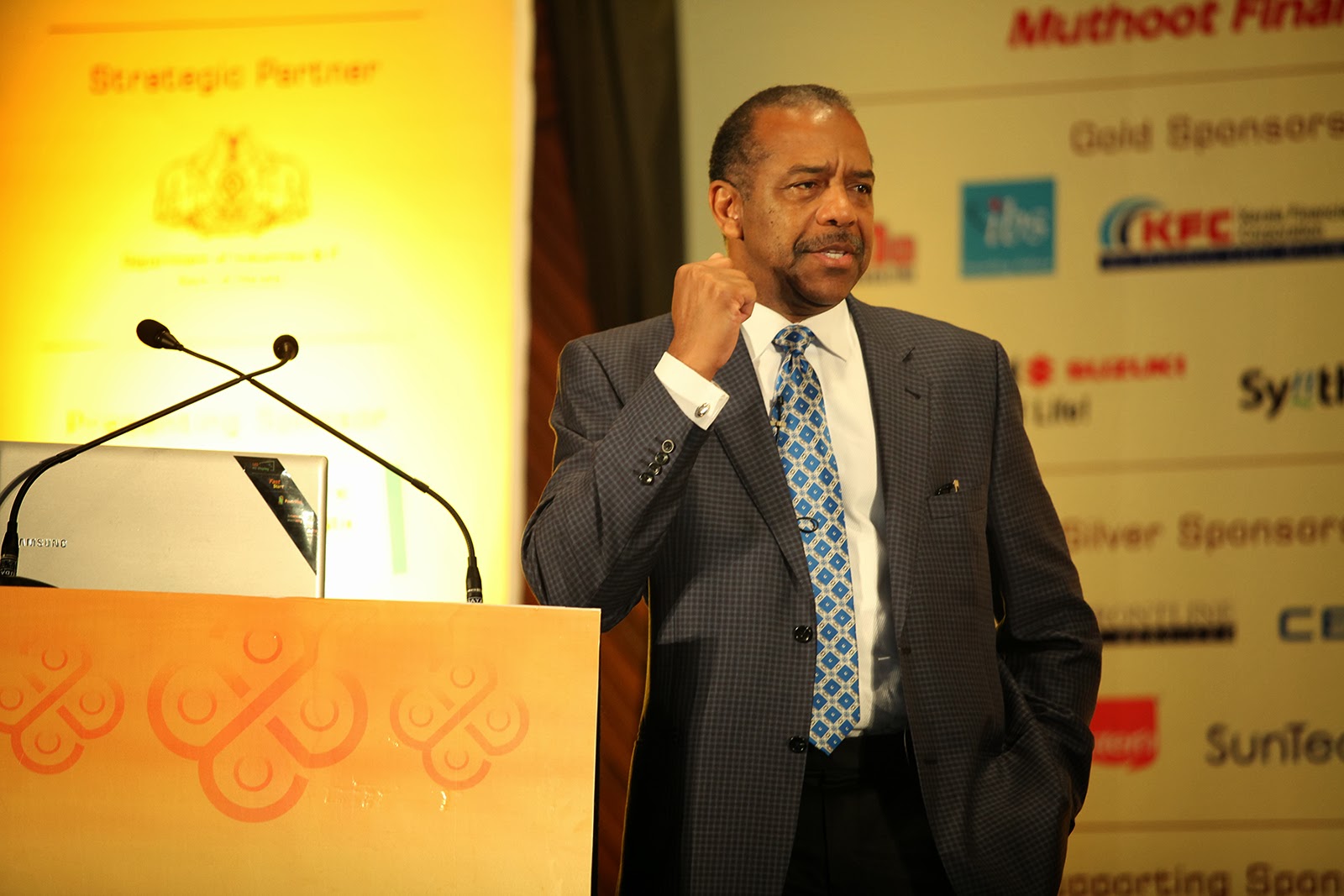Bernard
Harris is the first African-American to go to space. The astronaut
talks about his experiences
By
Shevlin Sebastian
Bernard
Harris opens the hatch of the space shuttle, Discovery, and
steps out. He is wearing a white Extra Vehicular Activity suit, which
weighs 159 kgs on earth, but is weightless in space. He gets
onto a robotic arm which lifts him up. “So now I am 35 feet above
the shuttle,” he says. “I can see the earth, which is blue and
white, and looks beautiful. And behind the planet is a sea of stars
of the Milky Way. It is the most incredible view I have ever seen.”
One
of the primary experiences for Bernard is the lack of gravity. “When
there is no gravity, physically you feel free,” says Bernard, who
had come to Kochi to be a featured speaker for the TiE Con Kerala
event. “You are not confined to operating in a two-dimensional
space. Inside the shuttle, if I wanted to go from one side to the
other, all I had to do was to press my fingers against the wall and
soon I was gliding across. It was a novel experience.”
Eating
was easy, but sleeping difficult. “We are used to sleeping on a
bed, which is anchored by gravity,” says Bernard. “But in space,
the sleeping bags are tethered to the wall or the ceiling. Breathing
is easy, but there is a nagging headache for the first two days.”
That
is because one-fifth of the blood, in the legs, which is usually held
down by gravity, moves up and reaches the tissues of the face and
makes it look puffy. The fluid also fills the nasal passages and most
astronauts have a head cold. “We don't think as clearly,” says
Bernard.
Astronauts
also grow an inch or two in space. “One reason is that we do not
have the weight of the body,” says Bernard. “The extra water goes
into the tissues in the discs in the spinal cord and stretches the
spine.”
The
mission, which began on February 9, 1995, included a
rendezvous with Mir, the Russian Space Station, the retrieval of a
damaged satellite, as well as an investigation into the long-term
effects on the human body while being in space.
Not
surprisingly, as Bernard beheld majesty of space, he had a spiritual
elevation. “I have always believed in a higher being,” he says.
“In space, everything is perfect. The planets, the solar system and
the galaxies – all this did not happen by accident. There has to be
some higher power which orchestrated all this. My faith in God
deepened.”
Not
many people know that going to space was the fulfillment of a
childhood dream for Bernard. It started in 1969 when he was 13 years
old. On a black and white television set, he saw astronauts Neil
Armstrong and Edwin [Buzz] Aldrin land on the moon. It was a
tremendous moment for Bernard when Armstrong said, 'This is one small
step for man, and a giant leap for mankind'. He decided that he would
follow in the footsteps of these great men. “It was a leap of faith
which I took,” he says. And unlike most people, Bernard was able to
fulfill this childhood dream of travelling in a space shuttle.
“The
shuttle is a fascinating vehicle,” he says. “It takes about seven
million pounds of thrust out of five engines to get off the ground.
As the force hits the ground, we are going so fast in the opposite
direction that by the time we clear the launch tower we are going
faster than the speed of sound.”
In
two minutes they reach an altitude of 1 lakh feet. That is about
three times higher than what most aircraft fly. “We are now above
most of the atmosphere,” he says. “We are going from 2500, to
5000, 15,000 to 17,000 miles an hour till we reach zero gravity. At
this moment it is so wonderful to get out of the seat, look out of
the window, and see the Earth.”
Bernard
is only one of 538 people who have been in outer space. In fact, he
is the first African-American to do a spacewalk. In a career spanning
19 years, Bernard logged 438 hours and travelled 72 lakh miles in
space.
Asked
the qualities needed to be a good astronaut, he says, “He or she
should have the ability to learn new things. When I became an
astronaut I had to learn how to fly jets, to survive in different
environments, and to parachute from an aeroplane towards land as well
as water. You also have to be a stable person. In other words, you
have to learn to keep your emotions under control.”
Apart
from being an astronaut, Bernard is a qualified doctor, a former
associate Professor of Internal Medicine at the University of Texas,
as well as an author of several scientific publications. Bernard is
now the Chief Executive Officer of Vesalius Ventures, Inc., a venture
capital firm.
Bernard
also has his heart in the right place. He has set up the Harris
Foundation, which helps economically disadvantaged students, the
majority of whom are African-American, Latino and Hispanic students.
“It is not about skin colour,” he says. “We also reach out to
white students in rural areas. Unfortunately, the majority of the
poor are African Americans.”
Bernard
has also won numerous awards, including honorary doctorates from
several American universities. A fellow of the American College of
Physicians, he has received the NASA Space Flight Medal, a NASA Award
of Merit, and the 2000 Horatio Alger Award.
“All
of us have talents and abilities,” he says. “Every individual was
born to do something special.
(The New Indian Express, Kochi)


No comments:
Post a Comment